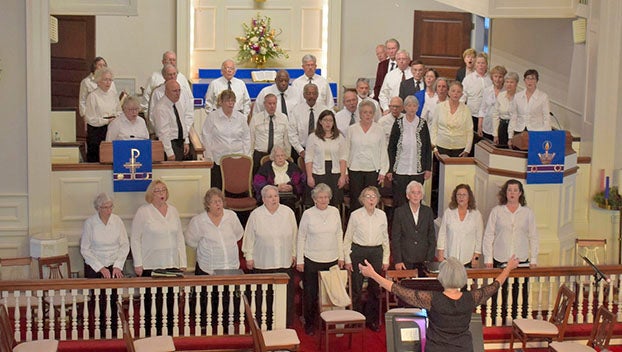Tax Rates Are Raised On Meals, Real Estate
Published 3:25 pm Tuesday, June 21, 2011
FARMVILLE – Town Council adopted advertised meals tax and real estate tax increases during their continued meeting Thursday night.
The meals tax rises from 6.5 to seven percent, effective July 1, with the real estate levy moving from 10 to 12 cents per $100 of assessed value.
The meals tax is the Town's largest revenue source and the half-percent increase would generate approximately $182,000 more for 2011-12.
The two-cent real estate tax increase should yield $103,000 more in revenue, the Town estimates.
Thursday evening's meeting was convened specifically to adopt the budget following the legally prescribed seven-day wait after the June 8 public hearing.
During that public hearing L. D. Phaup, who has lived in Farmville for more than 40 years, complimented Town officials, saying he was “very proud of your accomplishments as representatives of our Town and I think our Town is well-managed…
“Looking at the budget,” Phaup continued, his economy-driven concern is the struggle some may be having holding on to their homes, if they own them, or making rental payments, because increased housing expenses are often passed along to those who lease.
“My recommendation is to tax our meals…As much as I eat out that would cost me more than taxing my property. But I believe that is the fair way to do it,” Phaup said, noting many people who pay the meals tax in Farmville don't live in Farmville.
“We are a regional hub that is highly used by many people who come to Farmville to shop and eat and so forth…We provide an opportunity for them. I'd love to see them pay a little bit more. I would not tax my homeowners here in this town…There are a lot of people who don't have real estate in this town but they do eat meals,” Phaup said.
Those sentiments were echoed by Farmville resident Jim McGall, who also praised Town officials, saying he appreciated the amount of work done on the proposed budget.
McGall then said he was against the increase in real estate tax. “I don't eat out that much but when I do the additional tax is usually not considered or thought about when you're paying your meal bill,” he noted.
Phaup and McGall were the only two speakers during the budget public hearing.
Town Council wasn't thrilled to be raising taxes but members had previously said it was unfair to place the burden of raising additional revenue on one tax alone-and when they discussed a meal tax-only strategy they caught heat from the business community, among others-hence the meals tax and real estate tax two-pronged strategy.
Council member Dr. Edward I. Gordon noted Thursday night that the Town of Farmville had previously lowered its real estate tax from 14 cents to 10 cents per $100 of assessed value after Prince Edward County's reassessment resulted in increased property values.
With apparent reference to the water authority discussions underway between the Town and Prince Edward County-which Town Manager Gerald Spates said Thursday were “moving along very well”-Dr. Gordon spoke of hopes the Town's financial situation would improve soon.
The water authority would buy the Town's water treatment plant and associated infrastructure, a major financial windfall for Farmville, if it occurs.
Dr. Gordon said it might be possible to change the budget, based on revenue flow, should something quite positive happen during the year.
But, he added, Town Council needs to vote on what is concrete and set in the hear and now.
“I think when you have a possibility, as solid as it sounds, it's still just a possibility,” Dr. Gordon said, “and I think we've got to act on solid ground.
“This,” he said in reference to the proposed budget, “is what we got in front of us.”
And that is what Town Council voted to adopt.
Council member Donald L. Hunter expressed chagrin that there was insufficient revenue to increase Town of Farmville employees' pay, based on performance, and said he would like to do so next year, if there is no need to raise taxes again.
When Dr. Gordon spoke, again in apparent reference to water authority negotiations, Hunter said, “that bird is still in the bush.”
Like Dr. Gordon, and other council members, Hunter felt the necessity to vote on what is known and certain heading into the 2011-12 fiscal year.
Town officials, meanwhile, had also noted the number of sanitation related services provided by the Town of Farmville without the separate sanitation fee charged for such services by many towns.
“And also we put in there an increase in real estate tax to help pay for the sanitation services-the landfill fees, recycling program, trash cans and everything that's furnished to residents. This is the simplest way to do it, to put it on your real estate (tax) rather than go with a separate billing for sanitation (services),” Spates told council members during previous budget deliberations.





